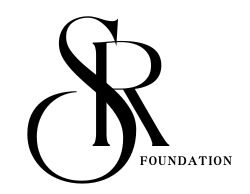Introduction
“Follow your passion.” We’ve all heard it. But what does it truly mean? And more importantly, how do you even find your passion when you’re still figuring out life? In a world full of choices, distractions, and societal expectations, discovering what genuinely drives you can be confusing. This blog breaks it down with real-life case studies, proven frameworks, and actionable steps.
Why Finding Your Passion Matters
A global study by Deloitte found that only 13% of the workforce is truly passionate about their jobs. Passion is the fuel that powers perseverance, innovation, and long-term satisfaction. It’s not just about doing what you love it’s about being so immersed in something that work feels like play.
CASE STUDY: SIDDHARTH’S STORY
Siddharth, a Class 12 student from Coimbatore, was torn between preparing for NEET and exploring music production. After a career counselling session and using a passion-finding tool, he started a part-time online music course. By the time he finished school, he had launched three tracks on Spotify and found a Music Tech program in Canada.
Understanding Passion: Theories That Help
1. Ikigai (Japanese Concept)
The Ikigai model is about finding the intersection between:
- What you love
- What you’re good at
- What the world needs
- What you can be paid for
Passion sits between what you love and what you’re good at. Ikigai adds purpose to that passion by integrating service and value.
2. Howard Gardner’s Theory of Multiple Intelligences
According to Gardner, people have different types of intelligences – linguistic, logical, musical, bodily-kinesthetic, interpersonal, intrapersonal, etc. Understanding your dominant intelligence can give you clues about where your passion lies.
3. Flow Theory (Mihaly Csikszentmihalyi)
Passion often arises when you enter a state of flow—a mental state where you lose track of time because you’re so involved in an activity. Observe when you experience this and note the activity.
Tools & Tests to Discover Your Passion
1. Psychometric Assessments
- MBTI (Myers-Briggs Type Indicator): Gives insights into your personality and ideal work styles.
- DMIT (Dermatoglyphics Multiple Intelligence Test): Uses fingerprint analysis to understand brain dominance and interests (used mainly for school students).
- Holland Code Test (RIASEC): Helps match your personality to potential career fields.
2. Passion Discovery Worksheets
Simple self-assessment tools with prompts like:
- What do I love spending time on?
- What topics do I talk endlessly about?
- What kind of problems excite me to solve?
3. Mind Mapping Your Interests
Create a mind map with yourself in the center and branch out into subjects, hobbies, causes, people who inspire you, etc. Over time, you’ll spot patterns.
CASE STUDY: PRIYA’S DISCOVERY JOURNEY
Priya, a second-year B.Com student in Delhi, felt directionless. After using the RIASEC test and speaking with an SR Foundation mentor, she realized her inclination towards social causes. She began interning with NGOs and eventually pursued a career in CSR (Corporate Social Responsibility).
The Passion Discovery Journey: Step-by-Step
1. Explore Broadly
Try internships, volunteering, online courses, hobby clubs, and freelance gigs. Exposure leads to clarity.
2. Reflect Deeply
After each experience, ask:
- What did I enjoy most?
- What drained me?
- What gave me energy even after hours?
3. Document Regularly
Maintain a journal or digital diary. Note your interests, triggers, and feelings. Revisit monthly.
4. Ask for Feedback
Sometimes, others see our talents more clearly. Ask mentors, friends, and teachers what they think you’re naturally good at.
5. Take Career Counselling Seriously
A structured counselling session with trained professionals can bring objectivity and insight to your confusion.
Statistical Snapshot
- A CareerExplorer study found that 68% of people feel they are in the wrong career.
- Students who received career guidance before Class 10 were 40% more likely to choose careers aligned with their interests (Naviance Report).
Common Myths About Passion
- Myth: Passion is found instantly.
Truth: It’s often built over time with practice and curiosity. - Myth: Passion means constant happiness.
Truth: Even your passion will have hard days. But it’s worth it. - Myth: You can have only one passion.
Truth: You can have multiple. Prioritize and combine them.
Real-Life Example: Tanvi the Techie-Dancer
Tanvi, a BTech student, loved classical dance. Rather than quitting one for the other, she created an AI-based posture correction tool for dancers as her final year project. Her passion for tech and dance merged into innovation.
How SR Foundation Helps
- Personalized passion-mapping sessions
- Certified counsellors from IIT Madras Pravartak, Mentoria
- Access to 30+ psychometric tools and analysis
- Career immersion workshops and exploratory sessions
- Mentorship from professionals across fields
Conclusion
Finding your passion isn’t a one-day affair. It’s a layered, exciting, and empowering journey. You’ll know you’re close when you wake up excited, when challenges energize you, and when time flies while you’re immersed in an activity.
At SR Foundation, we believe that every individual has a unique spark. Our mission is to help you uncover it and shape a future that is not just successful—but soulful.
Want to take your first step?
Reach out to us for a free discovery session. Let’s find your fire together.




